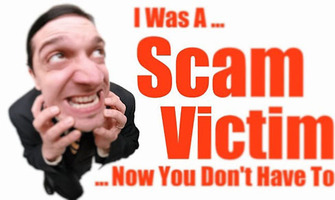Aprial 10, 2025
admin:
Dear Citizens of the world, as we go through
this difficult social and economic times in
japan and other parts of the world, let us
come together and say no to fraud. As you
might all know by now, this site is dedicated
towards fighting fraud and scamming from this
dubious dealership Japan partner. Let us all
protect our hard earned monies particulary
during this period of uncertainity. On that
note, be warned of a fake advert online and i
Quote "SHIPMENT OPTIONS RO-RO shipment is the
most convenient and usually cheapest option.
Available for the most major port.
Containerized shipment is an option when RO-RO
shipment isn’t available, but is usually more
expensive if you buy just one vehicle. If you
buy more than one vehicle we can fit 2 small
cars in one 20ft container and 3-4 cars in one
40ft container. If you are wholesale buyer
shipment in containers may be even more
profitable. If you buy cars for parts to be
dismantled, tractors, forklifts and other
machinery, containerized shipment is the only
available option. REGISTER at our website and
shipment will be calculated automatically for
the port you choose. INFORMATION Kei car,
K-car, or kei jidōsha, is a Japanese class of
small vehicles, including passenger cars,
microvans, and pickup trucks (kei trucks).
They are specially designed to comply with
Japanese tax and insurance regulations.
Currently, maximum engine displacement of Kei
cars class engines is 660cc. While being
successful in Japan, mini trucks, mini cars
and microvans, these vehicles are too
specialized and too small to be profitable in
export markets and mostly they have been never
imported abroud. That made them to be very
popular on second hand markets, because of
their rarity outside Japan. While being very
small they are still very convenient and
practical in many areas of living: farming,
small business, hunting, personal use. Kei
vehicles older than 25 years may be imported
into the USA. Most popular models of Kei cars
are: Subaru Sambar, Honda Acty Van, Honda
Beat, Suzuki Capuccino, Suzuki Carry Truck and
many others. See also subcategories: Mini
trucks (Kei trucks) for sale, Microvans for
sale" This scammers will cut copy other
websites to suck you in to their scam. Dont
send your money, you will loose it.
Japan partner also claims to have an interenational book of record certificate as indicated in their website.
This is a very specific and concerning issue. Here is a detailed breakdown of the situation regarding Japanese dealerships and fake "international" record books.
The Core of the Issue: The "Japanese Export Certificate"
First, it's crucial to understand what the authentic document is. Japan does not have a single "International Book of Records" for vehicles.
The genuine, standardized document used for exporting used vehicles from Japan is called the Export Certificate (輸出証明書, Yushutsu Shomeisho).
• Purpose: This is an official document issued by the Japan Ministry of Land, Infrastructure, Transport and Tourism (MLIT) that proves the vehicle has been legally deregistered in Japan and is cleared for export. It is a mandatory document for importing the vehicle into another country.
• Key Features: It has a specific format, official stamps (including the "Japenese" seal), and is often accompanied by a translation. It details the vehicle's information (VIN, make, model, engine number, etc.) and the exporter's details.
The "Fake International Book of Records" - What It Actually Is
The term "Fake International Book of Records" is a deceptive name used by unscrupulous dealers to describe one of two things:
1. A Forged Export Certificate: This is a straight-up counterfeit of the official Japanese government document. This is illegal fraud.
2. A "Dealer-Issued" Record Book: This is a document created by the dealership itself that looks official but is not. It might be called a "Vehicle Inspection Report," "Dealer Guarantee," or, tellingly, "International Vehicle Record." Its purpose is to mimic the official export certificate to deceive foreign buyers who may not know what the real document looks like.
Why Do Dealers Create These Fake Documents?
There are several malicious reasons:
1. Hide the Vehicle's True History: This is the most common reason. The fake document is used to conceal:
• Accident History: The car may have been severely damaged and poorly repaired.
• Odometer Fraud (Tampering): The kilometers/mileage on the odometer may have been rolled back to increase the car's value. The fake document will show the altered reading.
• Water or Flood Damage: A huge red flag that makes a car unsafe and prone to electrical failure.
• Being a Rebuilt Wreck: The car may have been declared a total loss (salvage title) in Japan or another country and then poorly rebuilt.
2. Create a False Sense of Legitimacy: For a buyer unfamiliar with Japanese exports, a document filled with stamps and official-looking logos can be very convincing. It's a tactic to build trust that is not deserved.
3. Bypass Import Regulations: Some countries have strict import rules regarding vehicle age, safety, or emissions. A fake document might falsify the model year or emission standards to make a non-compliant car appear compliant.
How to Protect Yourself: How to Spot a Fake
If a dealer, especially one found on non-reputable auction sites or social media, offers you an "International Book of Records," be extremely cautious.
Always insist on receiving the official documents:
• The Official Export Certificate (Yushutsu Shomeisho): This is non-negotiable.
• Bill of Lading (B/L): The document from the shipping company proving the car has been shipped.
• Commercial Invoice: The bill from the dealer.
• Certificate of Registration (Copy): The Japanese registration document (車検証 Shakensho) showing the previous owner and history.
Red Flags to Watch For:
• The document is called anything other than "Export Certificate" or "Yushutsu Shomeisho."
• Poor print quality, blurry logos, or spelling mistakes.
• Missing official stamps or seals.
• The dealer is reluctant to provide the documents upfront or makes excuses.
• The price is too good to be true. This is the oldest trick in the book; a significantly undervalued car often has a hidden problem.
What to Do If You Encounter This
1. Walk Away Immediately. Do not send any money. This is a major scam indicator.
2. Report the Dealer: If you are using a platform like Trade Car View, Car From Japan, or another larger site, report the specific dealer to the platform's administrators.
3. Use a Reputable Exporter or Agent: The safest way to buy a car from Japan is to use a well-established, reviewed export agent based in your country or a trusted bidding agent in Japan. They handle the auction purchase and paperwork on your behalf and have a reputation to uphold. They will only provide you with genuine documents.
4. Verify through an Auction Sheet: Cars from major Japanese auctions (like USS, TAA, JU, etc.) come with a detailed auction grade sheet. This sheet honestly grades the interior, exterior, and mechanical condition and notes any repairs or defects. A reputable dealer will always provide this auction sheet for the car.
In summary: The "International Book of Records" is not a real, official document. It is a hallmark of a scam. Always demand the official Japanese Export Certificate and work with verified, reputable exporters to ensure you receive a legitimate vehicle with honest paperwork.




